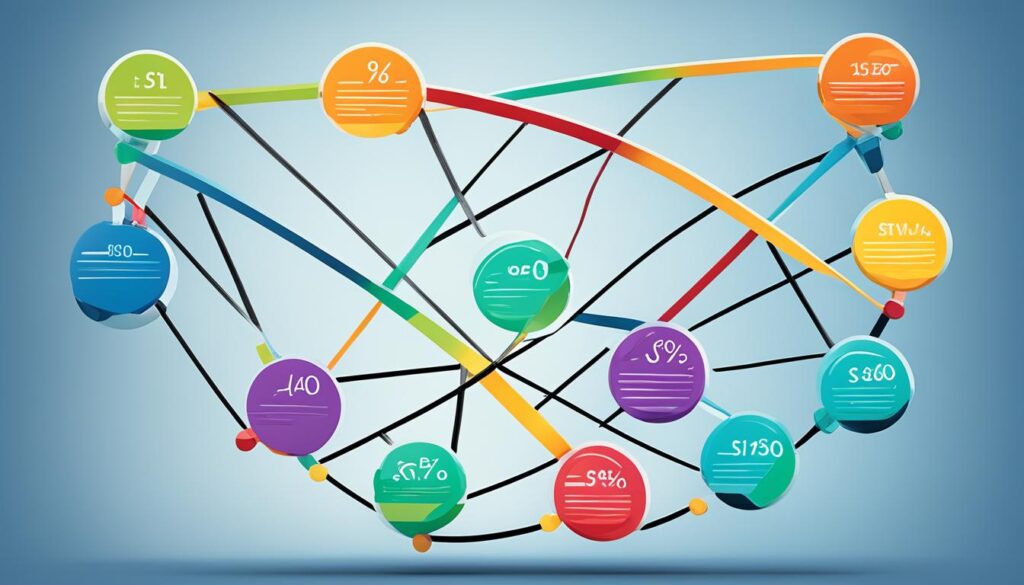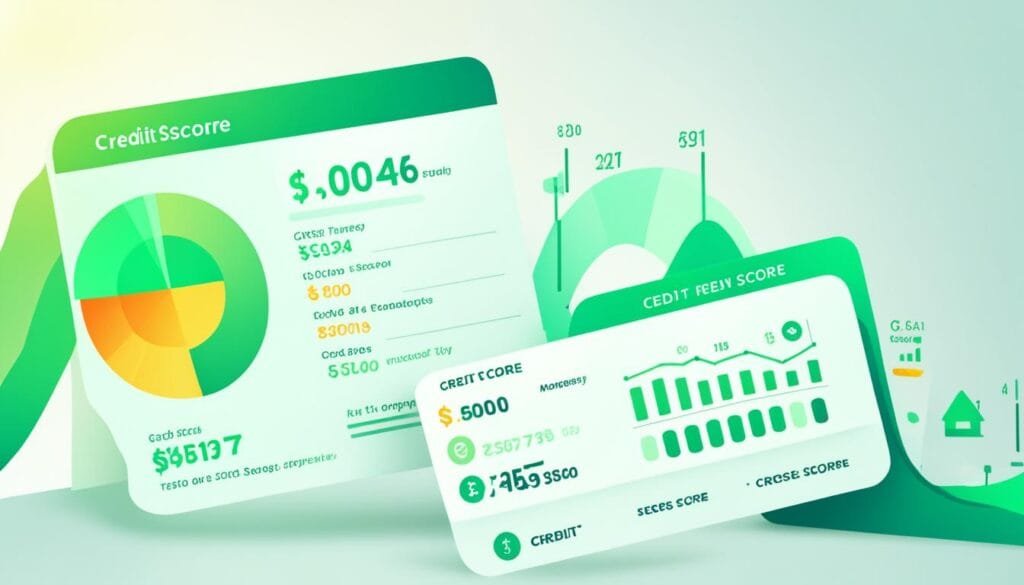Imagine this scenario: Sarah recently graduated from college and is now ready to start her adult life. She’s excited to explore new opportunities and make her dreams come true. One of the things she’s most excited about is buying her own car so she can travel and experience new places.
However, when Sarah goes to the car dealership to apply for a loan, she is shocked to find out that her credit score is not as good as she thought. She never really understood how credit scores worked or what factors influenced them. Feeling discouraged, she decides to put her dreams on hold and learn more about credit score factors.
She starts researching and discovers that credit scoring systems like FICO® Score☉ and VantageScore® analyze credit report information to predict payment behavior. The factors considered in calculating credit scores include payment history, amounts owed, length of credit history, credit mix, and new credit. Understanding these factors becomes her key to unlocking better financial opportunities.
Key Takeaways:
- Payment history, amounts owed, length of credit history, credit mix, and new credit are the main factors that determine credit scores.
- Payment history is the most important factor, so it’s crucial to make payments on time every month.
- Amounts owed and credit utilization ratio play a significant role, with lower utilization being ideal.
- A longer credit history and a mix of different types of credit can positively impact credit scores.
- Applying for new credit should be done responsibly, as multiple applications within a short period may temporarily lower credit scores.
Payment History
https://www.youtube.com/watch?v=T5UHXCrW0gI
Payment history plays a crucial role in determining credit scores, accounting for 35% of the overall score. It is the most significant factor in improving creditworthiness and establishing a positive credit profile.
Maintaining a consistent record of timely payments is essential to avoid negative consequences. Even a single late payment can have a significant impact on credit scores, potentially leading to higher interest rates on loans and credit cards.
“Late payments can have a lasting negative impact on credit scores.”
Accounts that are sent to collections, face foreclosures, or bankruptcies can result in even more severe consequences, significantly lowering credit scores and making it challenging to access credit in the future.
“Accounts sent to collections, foreclosures, or bankruptcies can have severe consequences on credit scores.”
To maintain a good payment history, it is crucial to make payments on time every month, including credit card bills, loan installments, and other financial obligations. Setting up reminders, automatic payments, or using budgeting tools can help ensure timely payments and contribute to improving credit scores.
| Payment History Impact on Credit Scores | Consequences |
|---|---|
| Timely Payments | Positive impact on credit scores. |
| Late Payments | Negative impact on credit scores. |
| Collections, Foreclosures, or Bankruptcies | Severe and long-lasting negative impact on credit scores. |
Amounts Owed
When it comes to calculating credit scores, amounts owed play a significant role, accounting for 30% of the overall score. The total amount of debt a person has and their credit utilization ratio are two key factors that impact credit scores.
The credit utilization ratio refers to the percentage of available credit that a person is currently using. It is recommended to keep this ratio below 30% in order to maintain a healthy credit score. Higher utilization rates can have a negative impact on credit scores, as it may indicate a higher risk of defaulting on payments.
To improve your credit score in this area, consider paying off high-balance credit cards and reducing your overall debt. This will not only lower your credit utilization ratio but also demonstrate responsible financial management to lenders.
| Key Points | Actions |
|---|---|
| Keep credit utilization below 30% | Pay off high-balance credit cards |
| Reduce overall debt | Monitor credit utilization regularly |
Length of Credit History
The length of a person’s credit history is a crucial factor that contributes 15% to their credit scores. Generally, the longer the credit history, the higher the credit score tends to be. A person’s credit history reflects their experience with credit accounts and demonstrates their ability to manage credit responsibly.
Closing accounts and paying off loans do not immediately cancel out their ages in calculating credit history. Instead, these accounts and their associated credit history can remain on credit reports for up to 10 years, showcasing a person’s credit experience even after closure or repayment.
Having a long credit history not only shows financial responsibility but also provides creditors and lenders with more data to assess a person’s creditworthiness. This, in turn, can positively impact credit scores and increase the likelihood of receiving favorable credit terms.
It’s important to note that a person with a shorter credit history still has the opportunity to build a good credit score by establishing new credit accounts and managing them responsibly over time. Consistent and responsible credit management can lead to score improvement and enhance overall creditworthiness.

Credit Mix
The credit mix is an important factor that contributes to 10% of your credit score. Lenders consider managing different types of credit as an indication of your creditworthiness. By having a mix of credit types, such as installment debt (student loans, mortgages, car loans) and revolving accounts (credit cards), you demonstrate your ability to handle different financial obligations.
To understand the impact of credit mix on your credit score, let’s take a closer look at how it works:
Impact of Different Credit Types
Diversifying your credit portfolio and having a good balance of installment debt and revolving credit can positively influence your credit scores. Lenders prefer to see a mix of credit types, as it indicates your ability to manage various financial responsibilities effectively.
Installment debt includes loans that you repay with fixed monthly payments, such as student loans or car loans. These types of loans typically have a predetermined repayment period. Revolving accounts, on the other hand, refer to credit cards or lines of credit that you can continuously borrow against, as long as you make the minimum monthly payments.
By responsibly managing both installment debt and revolving credit, you demonstrate your financial maturity and ability to handle different credit obligations. This can help you build a solid credit history and potentially improve your credit scores.
| Credit Type | Description |
|---|---|
| Installment Debt | Loans with fixed monthly payments, such as student loans, mortgages, car loans. |
| Revolving Accounts | Credit cards or lines of credit that allow continuous borrowing, as long as minimum monthly payments are made. |
Having a mix of both credit types can provide a more holistic view of your creditworthiness to potential lenders. It shows that you can responsibly manage different financial obligations, which can positively impact your credit scores.

Having a diverse credit mix is important, but it’s equally crucial to manage all your credit responsibly. Make sure to pay your bills on time, keep credit utilization low, and avoid taking on excessive debt. By doing so, you can improve your creditworthiness and increase your chances of obtaining favorable loan terms in the future.
New Credit
When it comes to credit scores, new credit can have an impact. The way you handle recent credit applications can raise concerns about your ability to manage multiple debts. This factor accounts for 10% of your credit score.
Applying for new credit can result in hard inquiries on your credit report, which may cause a temporary decrease in your credit score. Lenders view multiple inquiries within a short period as a potential risk.
However, it’s important to note that rate shopping for loans, such as a mortgage or auto loan, within a short timeframe typically does not have a significant negative impact on your credit score. Credit scoring models have mechanisms in place to treat these inquiries as one, recognizing that you’re likely comparing loan options to find the best terms.
On the other hand, it’s important to be cautious when it comes to credit card applications. Hard inquiries from multiple credit card applications within a short time frame can have a more significant impact on your credit score. Lenders may view this as a sign of increased risk, as it can indicate a possible reliance on credit or financial instability.
How Do Credit Score Factors Impact Employment Opportunities?
When considering job applications, employers often review the impact of credit score on employment. A low credit score may raise concerns about financial responsibility and trustworthiness. This can potentially affect opportunities for certain roles, especially those related to financial management or handling sensitive information.
Conclusion
Understanding the factors that determine credit scores is essential for improving creditworthiness. By paying bills on time, reducing amounts owed, maintaining a good length of credit history, having a mix of credit types, and being cautious with new credit applications, individuals can positively impact their credit scores.
Regularly reviewing credit reports, correcting any inaccuracies, and practicing responsible credit management are key to improving credit scores over time. It’s important to note that credit scores are not fixed and can be improved through consistent effort and responsible financial habits.
Factors affecting credit scores, such as payment history, amounts owed, length of credit history, credit mix, and new credit, all play a role in determining creditworthiness. By understanding these factors and taking proactive steps to improve them, individuals can enhance their overall credit profile and increase their chances of securing favorable loan terms and interest rates.
Improving credit scores is a gradual process that requires patience and discipline. It is important to establish good financial habits, such as making timely payments, managing debt responsibly, and avoiding excessive credit applications. By applying these strategies and staying vigilant about credit management, individuals can work towards achieving better credit scores and financial stability.
FAQ
What are the factors that determine credit scores?
The factors that determine credit scores include payment history, amounts owed, length of credit history, credit mix, and new credit.
How does payment history impact credit scores?
Payment history is the most important factor in determining credit scores. Paying bills on time is crucial for maintaining a good payment history.
What is the impact of late payments on credit scores?
Even one late payment can have a significant negative impact on credit scores. It is important to make payments on time every month to avoid damaging credit history.
How do amounts owed affect credit scores?
Amounts owed make up a significant portion of credit scores. The total amount of debt and the credit utilization ratio (percentage of available credit in use) impact scores.
What is the ideal credit utilization ratio?
It is ideal to keep credit utilization below 30%. Higher utilization rates can negatively affect credit scores.
How does length of credit history influence credit scores?
The longer a person’s credit history, the higher their credit score tends to be. Experience with credit accounts demonstrates good credit management skills.
What is the impact of closing accounts on credit history?
Closing accounts and paying off loans do not immediately cancel out their ages in calculating credit history. Responsible account closures can remain on credit reports for up to 10 years.
How does credit mix impact credit scores?
Managing different types of credit, such as installment debt and revolving accounts, shows creditworthiness. Lenders prefer a mix of credit types, which can positively impact credit scores.
How does new credit influence credit scores?
Applying for new credit can raise concerns about an individual’s ability to manage multiple debts. Multiple credit card applications within a short time frame can have a significant impact on credit scores.
How can credit scores be improved?
To improve credit scores, it is important to pay bills on time, reduce amounts owed, maintain a good length of credit history, have a mix of credit types, and be cautious with new credit applications.

